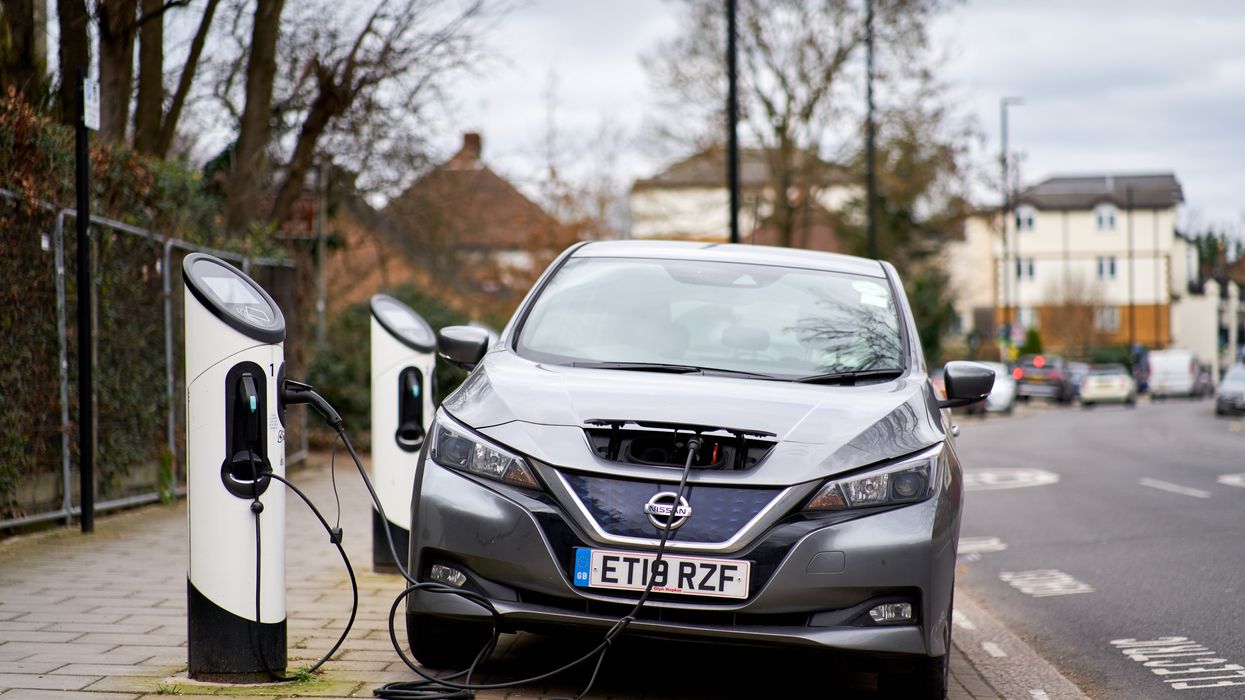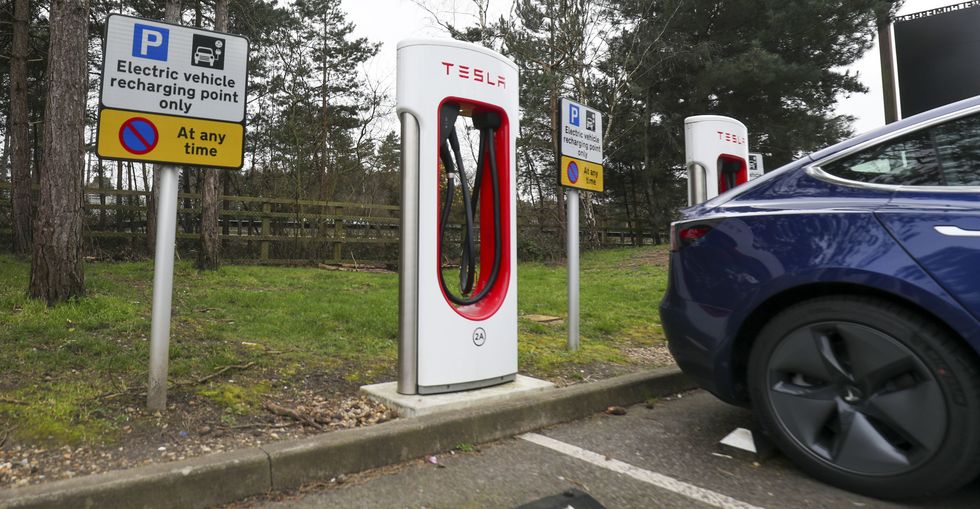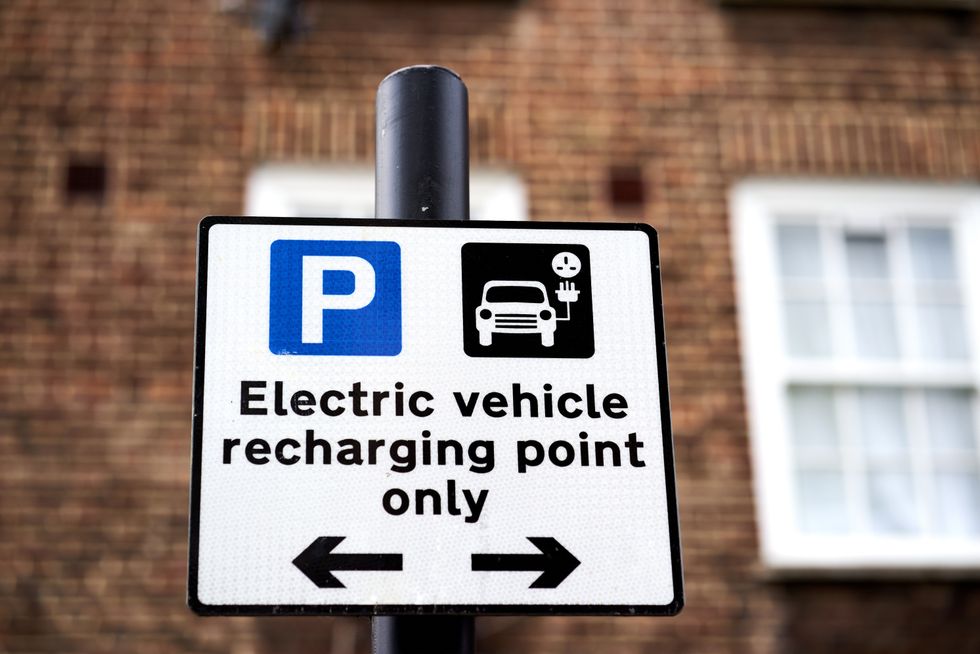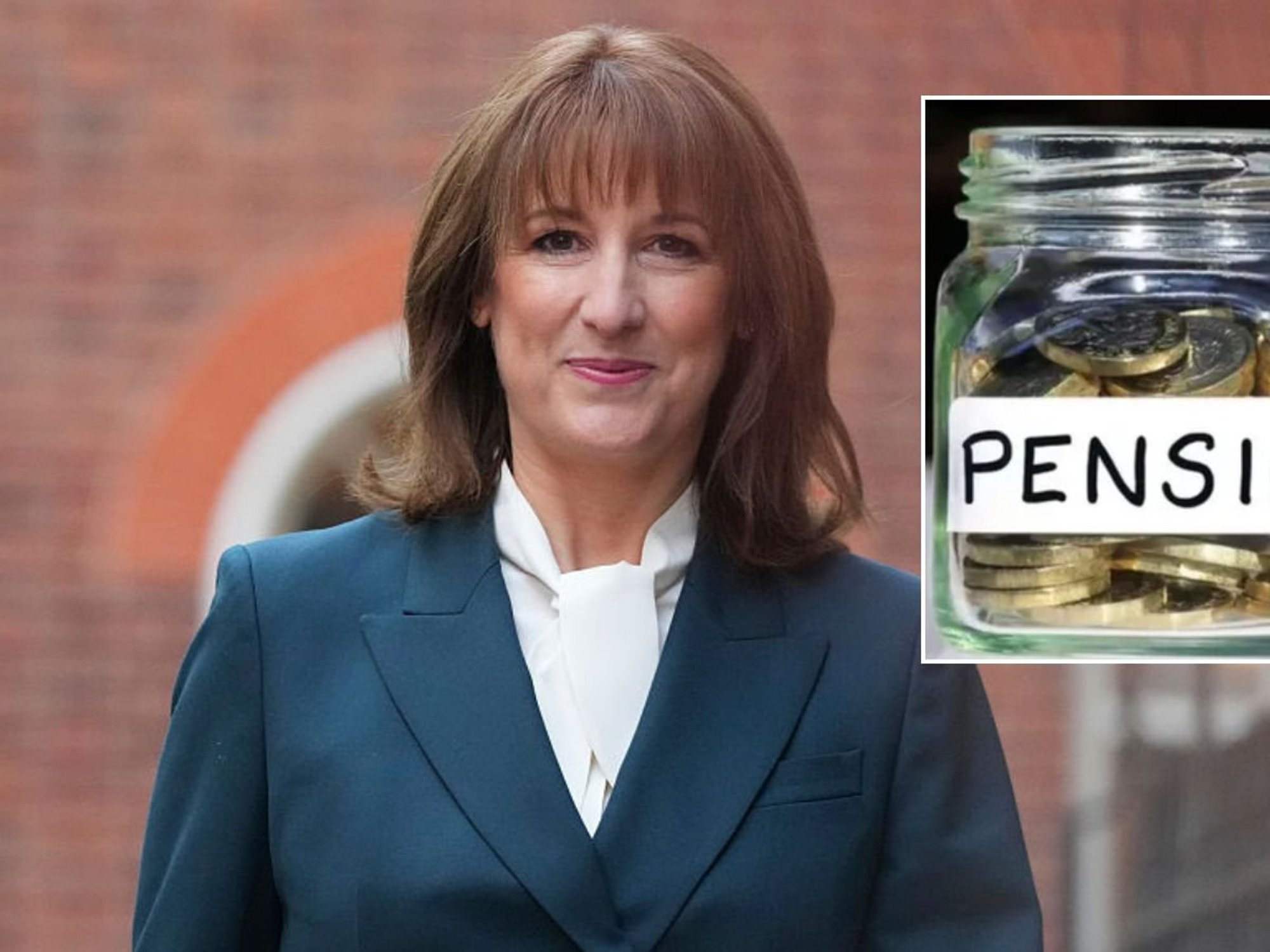Charging an electric car in public is now more expensive than filling up with petrol

Public EV charging is more expensive than filling up
|PA

Some electric car owners will now be paying more to charge than owners of petrol cars
Don't Miss
Most Read
The number of free electric car charging sites has fallen 34 per cent, with petrol and diesel prices continuing to fall in recent months.
With the dropping price of fuel, it is now more expensive to charge in public than it is to fill up at the petrol station.
Data has found that electric car drivers without off-street parking are paying up to £1,213 a year to charge, which is £1,037 more than those with a driveway.
With petrol prices around £1.47 per litre, it would cost an average of £1,023 to fill up a Volkswagen Golf based on annual mileage.

The number of free public EV chargers has fallen
|PA
This makes it £190 cheaper to fill up than it would be to fill up a comparable-sized Volkswagen ID.3 at a public charging station.
The research, from Electrifying.com, found that the number of free public chargers across the UK has fallen from 5,430 to 3,568 in just a year.
Scotland, the South East and London were the three areas with the highest number of free EV chargers, with almost 2,000 combined.
The North East, which has often lagged behind in EV statistics, had just 108 free public charging stations available for electric car owners.
Any drivers who do not have access to off-street charging face costs of up to £1,213 per year.
Anyone who can charge on their driveway and benefits from an off-peak energy tariff will pay just £176 for the year.
Ginny Buckley, founder and CEO of Electrifying.com, said: “With little over six years to go until 2030, it’s unacceptable that in some cases it’s cheaper to fill up a petrol car than it is to charge an electric car, and those without off-street parking - around one-third of drivers nationally - are the ones who are paying the price for this.
“With an estimated 80 per cent of electric car charging taking place at home, we can clearly see that this discrepancy is proving to be yet another barrier to electric car ownership.”
She added that access to free charging is a “brilliant incentive” to get people to switch, but said it was not a sustainable solution for the future.
Many have called on the Government to slash the rate of VAT on public chargers from 20 per cent to five per cent to match the rate of VAT on home charging.
Some major supermarkets have free electric car charging available to its customers, including Tesco, Sainsbury’s, Aldi and Lidl, but drivers are urged to check before they go to charge.
Many hotels across the UK also offer its customers the chance to charge during their stay, with local attractions like zoos and museums doing the same.
LATEST DEVELOPMENTS:

Drivers can save almost £1,000 with a driveway and EV tariff
|PA
Ginny Buckley concluded, saying: “Now is the time for those in charge to step up their game and start listening to both experts in the industry and consumers, so that no driver is left behind on our electric journey.”










